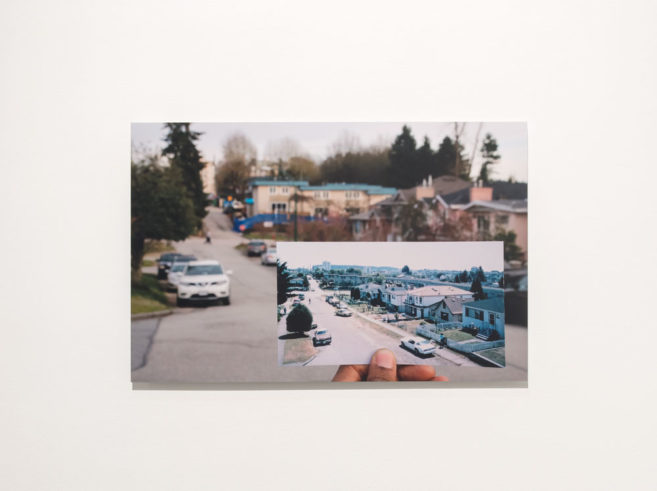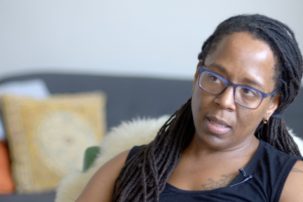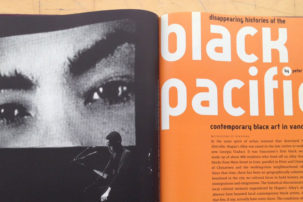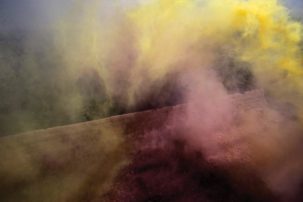In the 1950s, the Blue Sky nightclub in Vancouver’s Downtown Eastside was a hub for Black American sailors visiting the bustling port city.
But most Vancouverites today have little idea of that history: the building that housed the Blue Sky has since been demolished and, even in its own era, the club was marginalized and subjected to police raids.
Over the next 12 months, though, the club’s history—and the anti-Black oppression its patrons experienced—is resurfacing in a public artwork by artist Deanna Bowen.
Titled Night Prowl, the work reproduces, at monumental scale, an image of the Blue Sky nightclub’s sign from an October 1959 CBC news story about the forced closures of bars in Vancouver’s east end that were owned or frequented by racialized people. The project launched September 10 at the CBC Plaza at 700 Hamilton Street, and will be on view until summer 2020.
“The footage shows these bars being busted and the patrons being walked out by police into paddy wagons,” says Bowen in a phone interview. “The Blue Sky and other bars were busted for liquor-license infractions—and for attracting, quote-unquote, ‘elements’ the authorities didn’t like.”
Bowen also has a personal connection to the Blue Sky: “It was a kind of ‘sister bar’ (same clientele, geography, police/civic target) of the Harlem Nocturne bar, which my family ran.”
The Harlem Nocturne and the history of clubs in Vancouver’s Downtown Eastside owned by Black, Asian and South Asian people also formed the focus of Bowen’s recent exhibition at the Contemporary Art Gallery in Vancouver.
“The Downtown Eastside is where my family worked and lived, so I’m interested in these other stories of that area—definitely as a reclamation, but also as an honouring of this particular area of the city that is, more often than not, written about as a ‘problem’ site.”
The policing of the Blue Sky also reflects wider structural racism in Vancouver and how it affected the very architecture of the city. “The news story in the 1950s was very much about the devaluing of a particular community of people, a racialized community of people, and it definitely spills into larger discussions around Vancouver and Hogan’s Alley and the Georgia Viaduct.” The Georgia Viaduct plan, for instance, affected several clubs owned by people of colour. So Night Prowl “is about excavating that material, and highlighting a community that’s been unfairly framed,” says Bowen.
The Vancouver Heritage Foundation has programmed public art on the side of the CBC Plaza for a decade or so, and it was CAG curator Kimberly Phillips who first approached them about using the space for Bowen’s work.
“I was imagining that Night Prowl could operate like a kind of haunting, an afterimage of [Bowen’s] recent CAG exhibition that surfaces in the city to remind us of the depth of these (very recent but nearly entirely eclipsed) histories yet to be excavated,” Phillips says via email. “It offers us a kind of reminder of the reckoning that has yet to be done about our history of systemic racism and discrimination of Black and other communities of colour in Vancouver.”
For her part, Bowen is also hoping that Night Prowl makes a salient point about the importance of the CBC archives and the histories they record—especially at a time when those archives are allegedly being destroyed and deaccessioned in various ways.
“I like to champion the CBC archives,” says Bowen. “Maybe the archives could become more accessible, or have more artist residencies, to look at the telling of other stories and other histories.”
Archival projects such as Night Prowl, Bowen says, are particularly important, offering “this other way of highlighting Black community or the connections of a Black community that was purposefully dispersed.”
Clarifications were made to this article on September 26, 2019, to emphasize that Black-owned, Asian-owned and South Asian–owned clubs have been affected by policing bias and land expropriation in Vancouver’s Downtown Eastside.

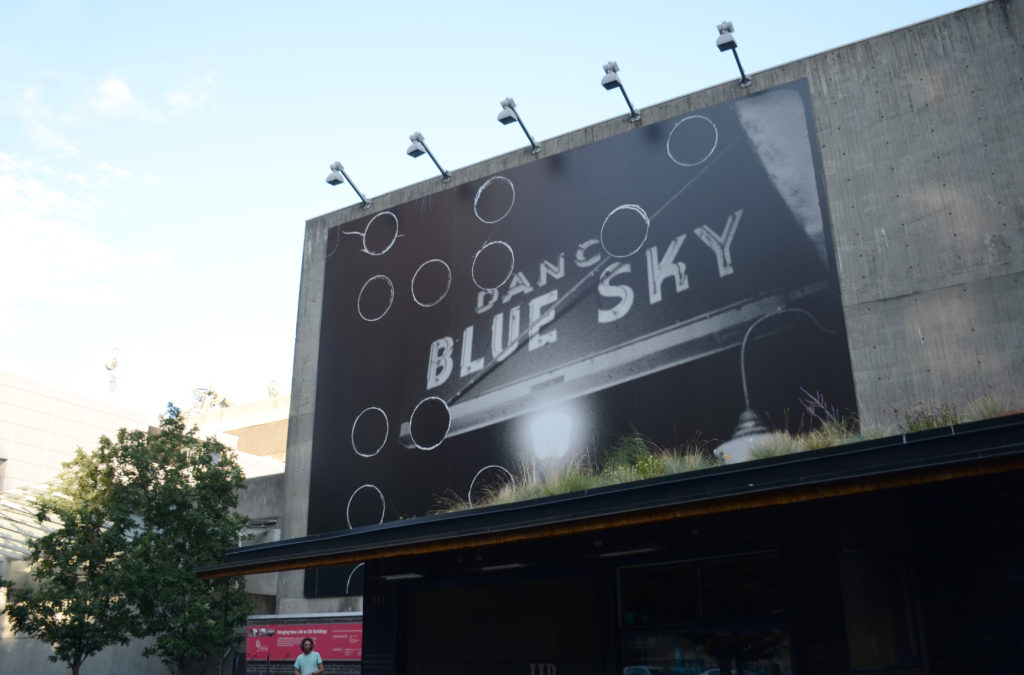 Deanna Bowen, Night Prowl, 2019. Installation view at the WALL, CBC Vancouver. Photo courtesy the Contemporary Art Gallery and Vancouver Heritage Foundation.
Deanna Bowen, Night Prowl, 2019. Installation view at the WALL, CBC Vancouver. Photo courtesy the Contemporary Art Gallery and Vancouver Heritage Foundation.
